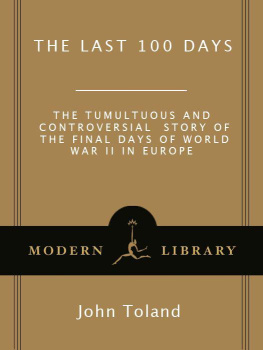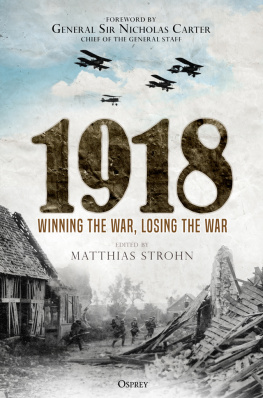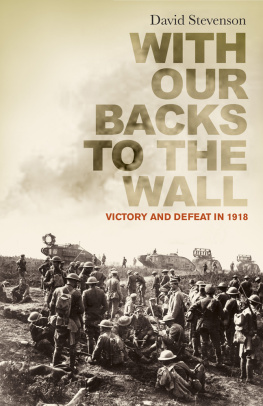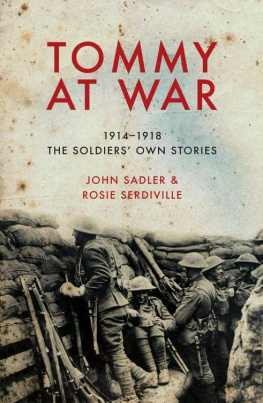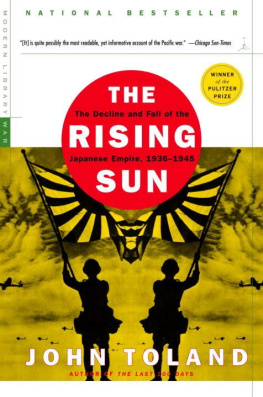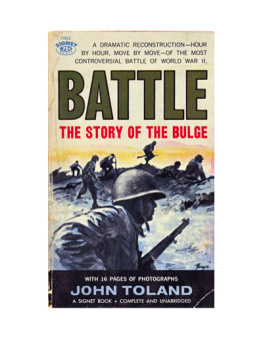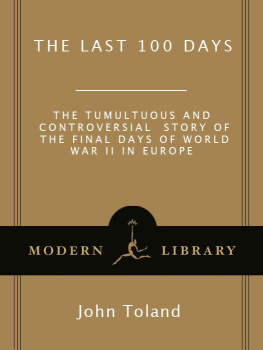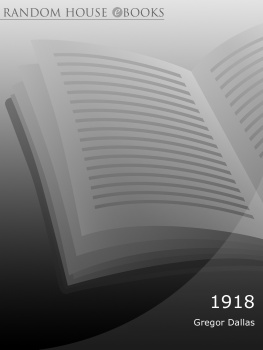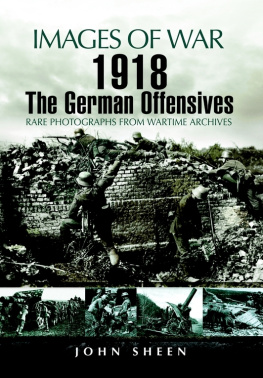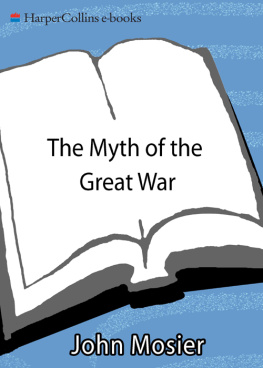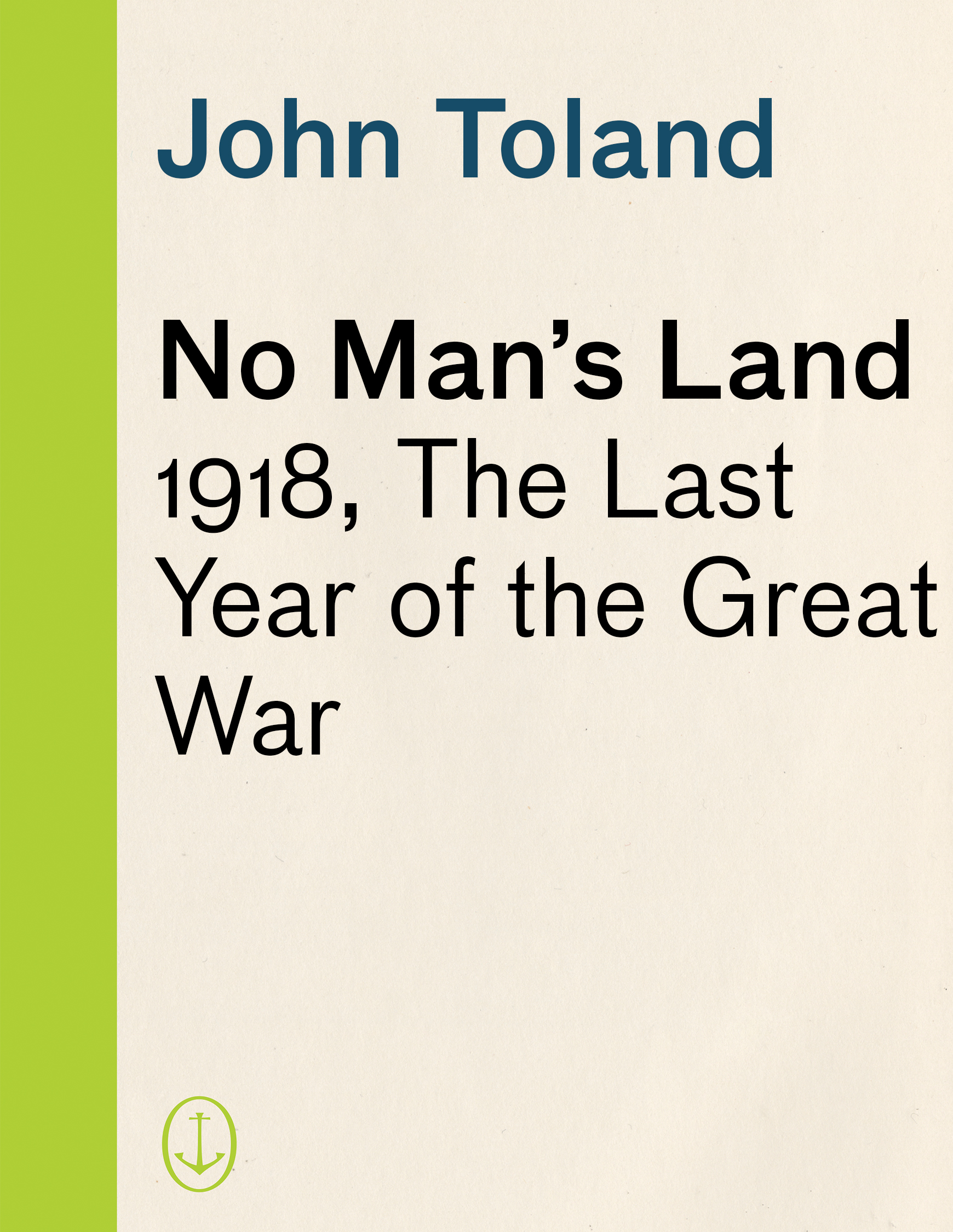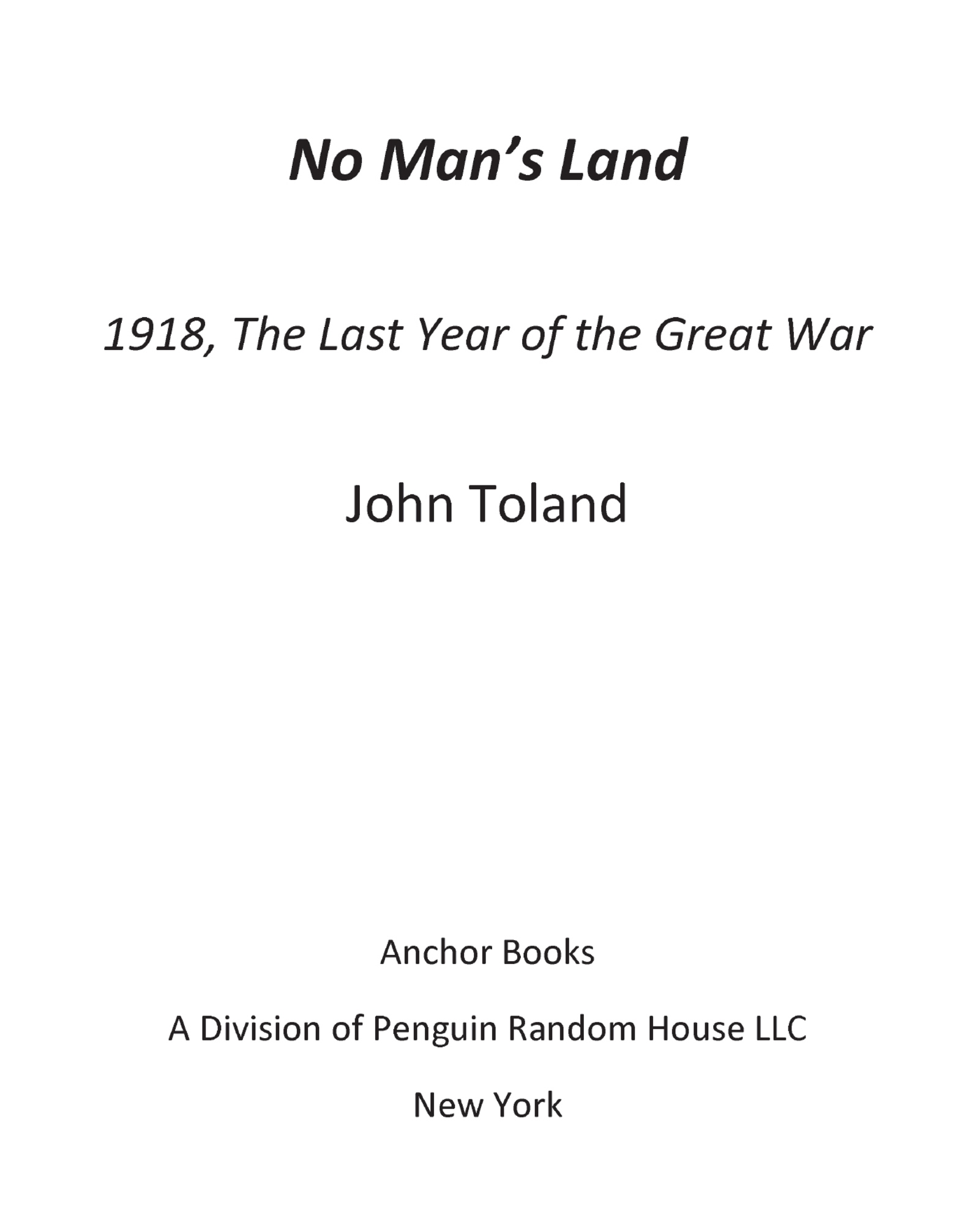Cast of Principal Characters
American
President Woodrow Wilson
Colonel Edward M. House, his chief adviser
Secretary of State Robert Lansing
Secretary of War Newton Baker
General John J. Pershing, commander A.E.F. in France
General Tasker Bliss, U.S. representative on Supreme War Council
Colonel George Marshall, operations officer of First Army
Brigadier General Douglas MacArthur, commander 84th Infantry Brigade
Lieutenant Colonel George S. Patton, 304th Tank Brigade
Gunnery Sergeant Paradise, Marines
Private First Class James W. Rose, 1st Division
Floyd Gibbons, Chicago Tribune
British
George V, King of England
David Lloyd George, Prime Minister
Arthur J. Balfour, Foreign Secretary
Lord Reading, Ambassador to Washington
Lord Derby, Minister of War, later Ambassador to France
Lord Milner, his successor as Minister of War
Winston Churchill, Minister of Munitions
Andrew Bonar Law, War Cabinet
Maurice Hankey, Secretary of War Cabinet
Sir George Riddell, publisher, intimate friend of Lloyd George
Herbert Asquith, former Prime Minister, leader of Minority
Colonel Charles ACourt Repington, military correspondent of the London Morning Post
General Sir William Robertson, Chief of Imperial General Staff
General Sir Henry Wilson, his successor
Major General Sir Frederick Maurice, Director of Military Operations
At the Front
Field Marshall Sir Douglas Haig, Commander-in-Chief British forces
General Sir Herbert Lawrence, his chief of staff
General Sir Julian Byng, commander Third Army
General Sir Hubert Gough, commander Fifth Army
General Sir Henry Rawlinson, his successor (army renamed Fourth Army)
Sergeant Paul Maze, special assistant to Gough and later Rawlinson
Lieutenant Colonel Graham Seton Hutchison, 33rd Division
Chaplain E. V. Tanner, 2nd Battalion, Worcestershire Regiment
Captain Arthur Behrend, heavy artillery officer
Captain R. S. Cockburn, 20th Division Reinforcement Battalion
Herbert Asquith, artillery officer
Lieutenant Patrick Campbell, artillery officer
W. A. Tucker, XI Corps Cyclist Battalion
Private H. Howard Cooper, Kings Own Lancasters
French
Premier Georges Clemenceau
President Raymond Poincar
General (later Marshal) Ferdinand Foch, Chief of General Staff
General Maxime Weygand, his chief of staff
Colonel E. Herbillon, liaison officer between Paris and High Command
General Henri Ptain, Commander-in-Chief French armies
General Charles Mangin, commander French Tenth Army
General Henri Mordacq, head of military cabinet
German
Wilhelm II, Emperor of Germany
Crown Prince Wilhelm
Chancellor Count Georg von Hertling
Max, Prince of Baden, his successor
Foreign Minister Richard von Khlmann
Rear Admiral Paul von Hintze, his successor
F. W. B. von Berg, chief of Kaisers civil cabinet
Colonel Hans von Haeften, head military department, Foreign Ministry
Admiral Georg von Mller, chief of Kaisers Naval cabinet
Friedrich Ebert, leader of German Social Democrats
Matthias Erzberger, centrist leader in Reichstag
Hans Hanssen, deputy in Reichstag
Evelyn Blcher, English wife of Prince Blcher
At the Front
Field Marshtal Paul von Hindenburg
Quartermaster General Erich Ludendorff
Quartermaster General Wilhelm Groener, his successor
Colonel Mertz von Quirnheim, Supreme Command Headquarters
Baron Manfred von Richthofen, the Red Baron
Colonel Georg von Bruchmller, artillery expert
Lieutenant Herbert Sulzbach, artillery officer
Lieutenant Rudolf Binding, artillery officer
Lieutenant Ernst Jnger, infantry officer
Franz Seldte, head of motion picture unit
Russia
V. I. Lenin
Leon Trotsky, Commissar for Foreign Affairs and later Commissar for War
Georgi Chicherin, his successor as Commissar for Foreign Affairs
Foreigners in Russia
David R. Francis, American Ambassador
Maddin Summers, American Consul-General in Moscow
DeWitt Poole, his successor
Norman Armour, secretary of American Embassy in Vologda
General William S. Graves, commander of A.E.F. to Siberia
Raymond Robins, chief of American Red Cross Mission to Russia


